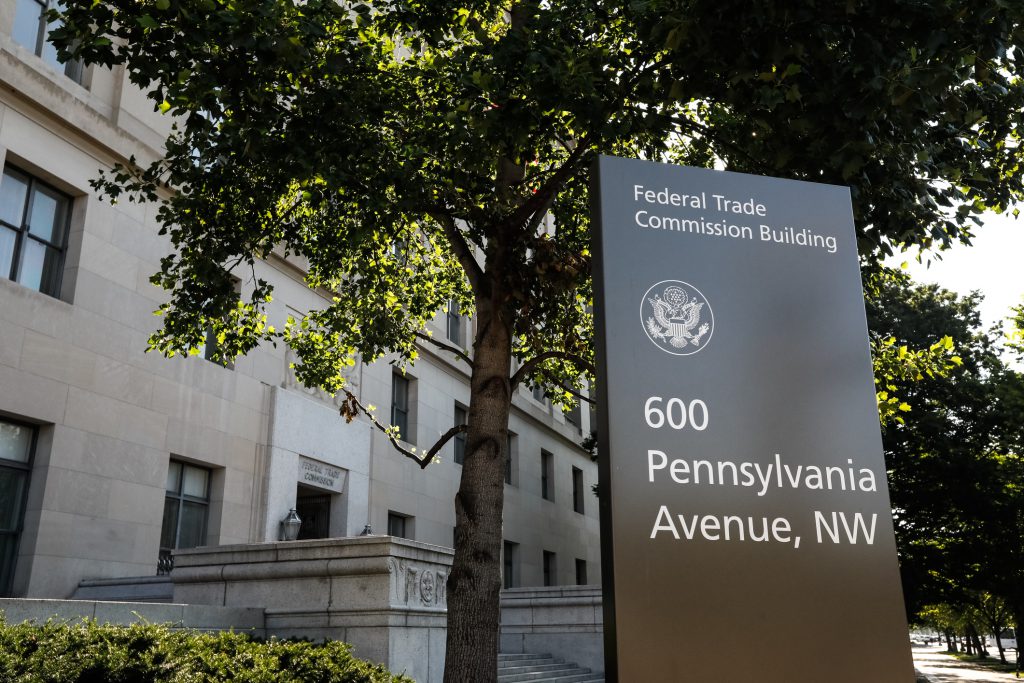The Federal Trade Commission (FTC) announced that it filed an antitrust suit against Facebook Wednesday afternoon, claiming that Facebook, “the world’s dominant online social network,” is “illegally maintaining its personal social networking monopoly through a years-long course of anticompetitive conduct.” The lawsuit concludes a long investigation that the FTC’s Technology Enforcement Division conducted along with 46 state attorneys general, as well as the attorneys general of the District of Columbia and Guam.
“Personal social networking is central to the lives of millions of Americans,” Ian Conner, Director of the FTC’s Bureau of Competition, said in the press release. “Facebook’s actions to entrench and maintain its monopoly deny consumers the benefits of competition. Our aim is to roll back Facebook’s anticompetitive conduct and restore competition so that innovation and free competition can thrive.”
The FTC averred that Facebook has “maintained its monopoly position by buying up companies that present competitive threats and by imposing restrictive policies that unjustifiably hinder actual or potential rivals that Facebook does not or cannot acquire.” Specifically, the FTC asserted that Facebook has monopoly power in the personal social networking services market.
The complaint said Facebook identified Instagram and WhatsApp as “significant threats to its dominant position,” so it mitigated the threats posed by both competitors by acquiring them in 2012 and 2014, respectively. The FTC cited a 2008 email from Facebook CEO Mark Zuckerberg expressing this sentiment, stating, “it is better to buy than compete.” According to the FTC, at the time, Instagram was a rapidly growing startup that came at a critical transition time where people were moving from desktop computers to smartphones for personal social networking and when users were increasingly sharing photographs. Subsequently, Facebook realized Instagram’s potential threat to Facebook. While Facebook initially worked to compete with Instagram by improving its own photo technology, Facebook ultimately bought Instagram for $1 billion in 2012.
Similarly, the complaint recounted that Facebook chose to acquire mobile messaging app WhatsApp who, according to Facebook, was a “clear global ‘category leader’” for $19 billion, noting it would pose a threat if it moved into Facebook’s market.
Moreover, the FTC claimed that Facebook documents noted that “it is very difficult to win users with a social networking product built around a particular social ‘mechanic’…that is already being used by an incumbent with dominant scale”; that is the power of a strong and dominant social network platform. Recently, Facebook users filed an antitrust suit against Facebook for its monopoly power in the social media and network markets, shutting out competition and monetizing their data.
Additionally, in an effort to further instill its market position, Facebook allegedly imposed various anticompetitive conditions that restricted access to its platform in an “anti user” and “hypocritical” manner with respect to Facebook’s so-called “mission of enabling sharing.” As a result, the FTC contended that this conduct has harmed competition, left consumers with few choices in the relevant market and took away the benefits of competition from advertisers.
Specifically, the agency said Facebook imposes various anticompetitive conditions and constraints on third-party software and app developers in regards to their access to important interconnections to Facebook’s platform, including application programming interfaces (APIs), which allow third-party developers to interface their apps with Facebook. For example, Facebook has allegedly only made important APIs available if the third-party developers do not develop competing functionalities and do not connect with or promote other networking services. The FTC uses numerous examples, such as Twitter’s Vine, an app with which users could capture and share short videos; in 2013 Facebook purportedly closed the API that would have let Vine access Facebook to share content. Facebook is facing a pending lawsuit from various third-party developers about this aforementioned anticompetitive conduct.
The case accused Facebook of violating Section 2 of the Sherman Act for its purported anticompetitive conduct and Section 5(a) of the FTC Act for its unfair methods of competition The FTC has sought declaratory judgment; a permanent injunction requiring divesting assets such as Instagram and WhatsApp, a prohibition preventing Facebook from imposing anticompetitive conditions on software developers, and a mandate that Facebook to seek prior notice and approval of future mergers and acquisitions. The government also seeks periodic compliance reports to be submitted to the FTC.
